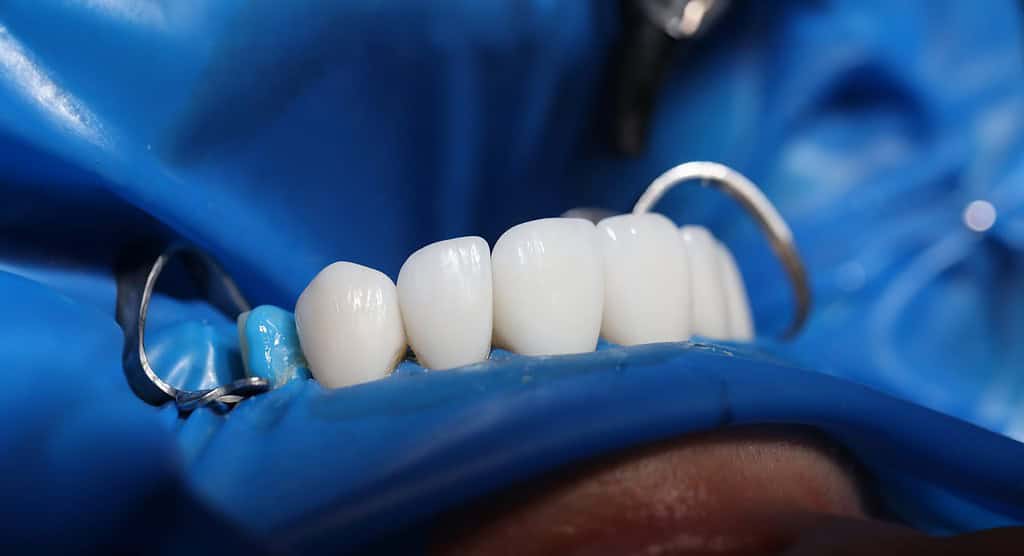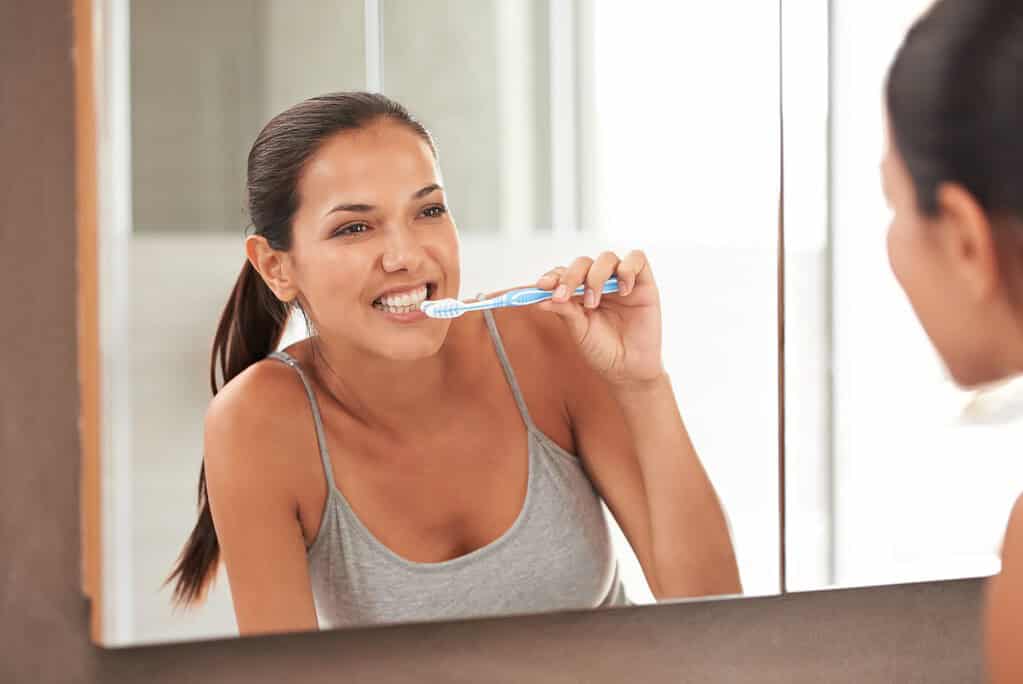If you’ve just had several teeth replaced with All-on-4 implants, congratulations on taking the first step toward a brand-new smile!
This advanced tooth replacement option is popular because it gives you a whole new set of teeth with a minimally invasive procedure.
However, just like any surgery, proper aftercare is essential to ensure a smooth recovery and the best possible results.
Your new teeth will need some time to heal, and following the right aftercare routine can help speed up the process and prevent complications.
Keep reading for our important aftercare tips to help you recover quickly and comfortably!
All-On-4 Dental Implants in Liverpool
Before we dive into the aftercare tips, let’s quickly talk about All-on-4 dental implants in Liverpool and why they’re such an effective solution.
This procedure is perfect for anyone with several missing or severely damaged teeth.
With All-on-4, you can enjoy a completely new set of teeth in just one day, offering both function and aesthetics with a minimally invasive approach. The results are not only long-lasting but also look and feel incredibly natural.
If you’re missing teeth and looking for a reliable solution, this could be the perfect option for you.
At Pall Mall Dental, we specialise in providing a same-day smile with All-on-4 implants. Schedule your appointment with us today and start your journey toward a full, confident smile!
Aftercare Tips for All-On-4 Implants
Rest! Rest! Rest!
One of the most important things to do after your All-on-4 implant procedure is to rest!
It’s easy to overlook, but giving your body time to recover can make a huge difference in how quickly you heal. Don’t try to jump back into your normal routine right away – taking it easy for a few days will help avoid complications and speed up your recovery.
Clear your schedule ahead of time, and if you need help around the house or with meals, don’t hesitate to ask family or friends to lend a hand.
Your body needs this downtime to heal properly, so put your feet up and relax!
Follow your specific post-surgery instructions
After your All-on-4 dental implant procedure, you’ll likely experience some soreness and swelling. Don’t worry, this is completely normal!
To help with your recovery, you’ll receive specific post-surgery instructions from us, and it’s crucial to follow them carefully.
These guidelines are designed to make sure your healing process goes as smoothly as possible.
For example, we may suggest sleeping with your head elevated for a few days to reduce swelling, or applying ice packs to your jaw in 15-minute intervals to ease discomfort.
And don’t forget to take any prescribed or over-the-counter pain medications as directed. By sticking to these instructions, you’ll help ensure a faster, healthier recovery!
Maintain proper hygiene
Good oral hygiene is crucial after your implant procedure. In the first few days post-surgery, your dentist will advise you to avoid brushing.
Instead, you’ll be instructed to rinse with a medicated mouthwash to keep the area clean without disturbing the healing process.
Once your dentist gives you the green light, it’s important to resume a proper oral hygiene routine, just as you would with natural teeth.
This means brushing twice a day, flossing daily, and using an antibacterial mouthwash.
Keeping up with your regular dental checkups is also key to ensuring your implants stay in perfect condition and your oral health stays excellent.
Maintain a strict diet
What you eat after the surgery plays a big role in your recovery. For the first few days, it’s important to stick to a soft-food diet to avoid causing any discomfort or complications.
Steer clear of hot foods or liquids, as well as anything hard or chewy that could irritate the surgical sites.
Instead, go for soft and gentle options like noodles, oatmeal, eggs, smoothies, protein shakes, yoghurt, soup, mashed potatoes, and applesauce.
These foods are not only easy on your mouth but will also help keep you nourished while you heal.
Need Help With All-On-4 Implant Recovery? We Can Help!
At Pall Mall Dental Care, we understand that the recovery process can come with questions or concerns, and we’re here to support you every step of the way.
If you need advice on dental implant aftercare or have any questions about the procedure, don’t hesitate to reach out.
Our team is always ready to help ensure your healing goes smoothly and that you’re on the right track. Feel free to contact us at any time, and we’ll be happy to assist you!
FAQs
Are all-on-4 implants permanent?
Yes, All on 4 dental implants are designed to be a permanent solution for replacing missing teeth. The titanium implants fuse with your jawbone, creating a strong and lasting foundation for your new teeth. With proper care and regular check-ups, your implants can last a lifetime.
Can I still get cavities under my all-on-4 implants?
No, you won’t get cavities under your implants because the material used for the prosthetic teeth is not susceptible to decay like natural teeth.
However, maintaining good oral hygiene is still essential to prevent gum disease or infections around the implants.
Is the process painful?
The procedure itself is not painful because we use anaesthesia or sedation to ensure your comfort throughout the surgery.
After implant surgery, some soreness and swelling are normal, but this can be managed with pain relief. Most patients report that the discomfort is manageable and subsides within a few days.
How long does All-on-4 implant last?
With proper care, they can last a lifetime. The implants themselves are permanent, but the prosthetic teeth may need to be replaced after 10-15 years due to normal wear. Regular dental check-ups will help keep everything in great shape.
Who is not a suitable candidate?
While All-on-4 implants work for many people, some may not be suitable candidates. Patients with severe bone loss in the jaw, uncontrolled diabetes, or certain medical conditions that affect healing may not be ideal for this procedure.
During your consultation, we’ll assess your individual situation and determine if the treatment is the best option for you.



